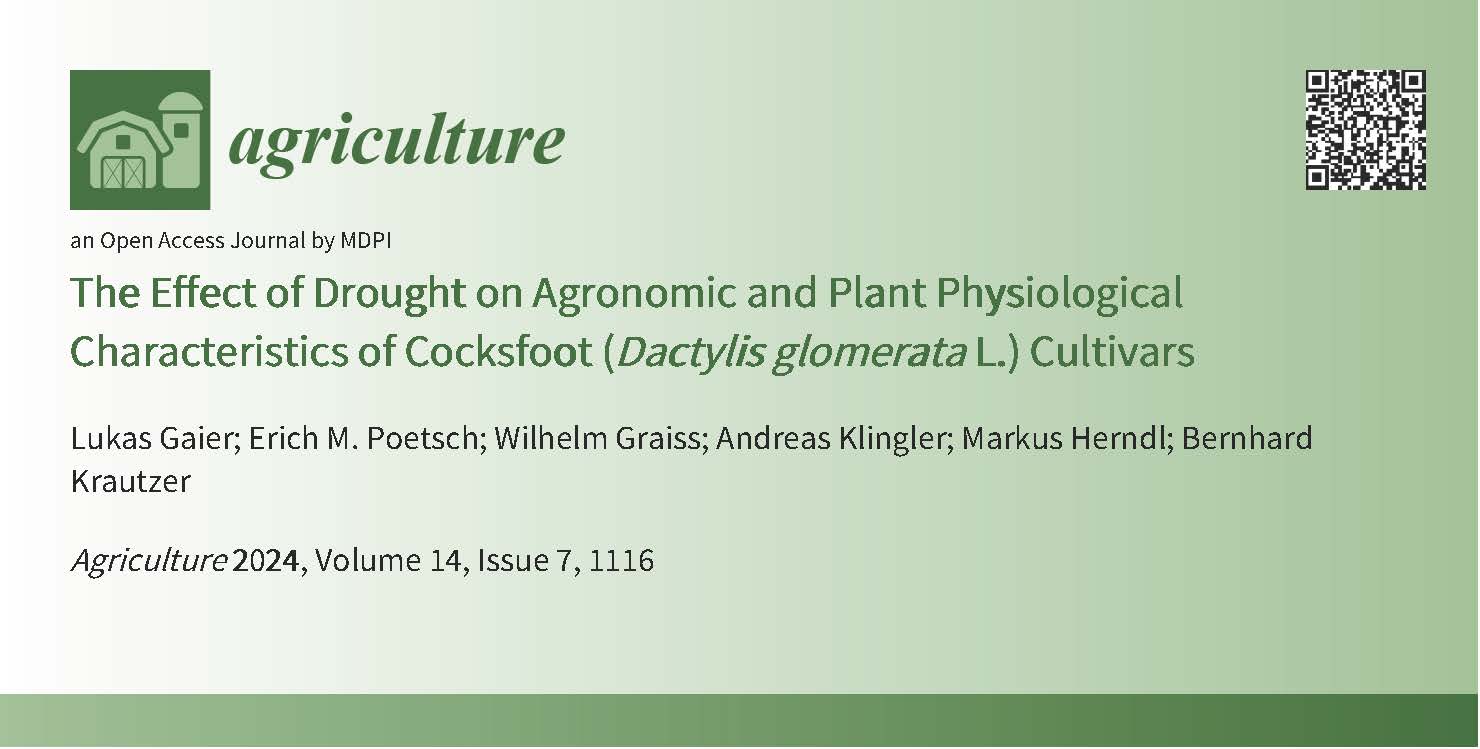A greenhouse pot experiment over three growing seasons showed that dry matter yield decreased under drought conditions while crude protein content and WUE increased, with results differing greatly between individual varieties.
Prolana had the highest yield under drought conditions, Tandem had the highest water use efficiency and Laban had the highest crude protein content.
These results emphasize the importance of breeding drought-resistant varieties to ensure high yields and quality in grassland cultivation under future climate conditions.
The article is freely available at: Gaier, L., et al. (2024). The Effect of Drought on Agronomic and Plant Physiological Characteristics of Cocksfoot (Dactylis glomerata L.) Cultivars. Agriculture, 14, 1116. https://doi.org/10.3390/agriculture14071116













